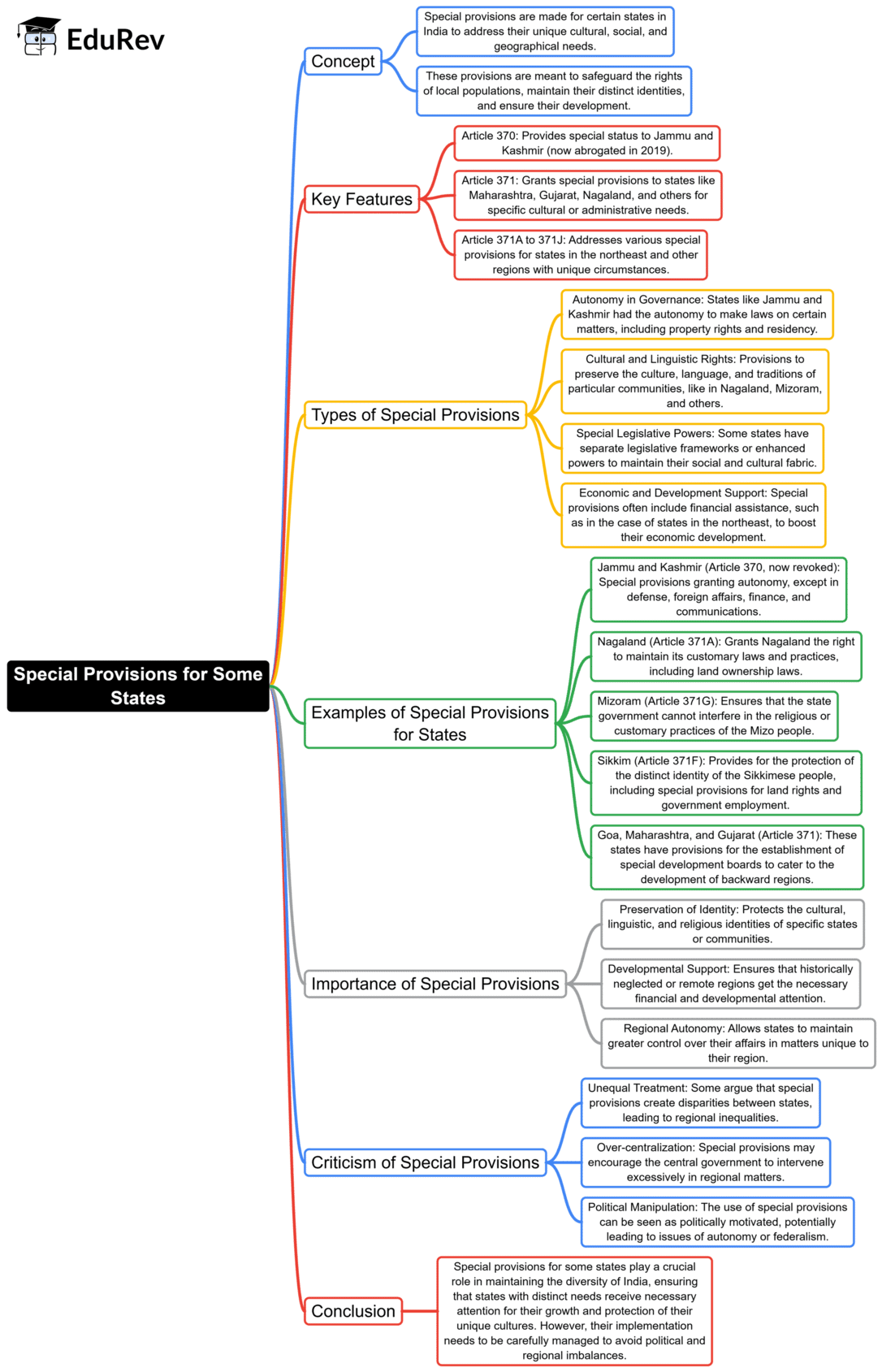UPSC Exam > UPSC Notes > Indian Polity for UPSC CSE > Mind Map: Special Provisions for Some States
Mind Map: Special Provisions for Some States | Indian Polity for UPSC CSE PDF Download

The document Mind Map: Special Provisions for Some States | Indian Polity for UPSC CSE is a part of the UPSC Course Indian Polity for UPSC CSE.
All you need of UPSC at this link: UPSC
|
162 videos|999 docs|260 tests
|
FAQs on Mind Map: Special Provisions for Some States - Indian Polity for UPSC CSE
| 1. What are the special provisions for certain states in India? |  |
Ans.Special provisions for certain states in India are outlined in the Constitution to address the unique cultural, geographical, and historical contexts of these regions. These provisions can include special autonomy, legislative powers, and affirmative action measures intended to protect the rights and interests of local populations.
| 2. Which states in India have special provisions, and what do they entail? |  |
Ans.States like Jammu and Kashmir, Nagaland, Mizoram, and Arunachal Pradesh have special provisions. For example, Article 370 granted special status to Jammu and Kashmir, allowing it to have its own constitution and significant autonomy until it was abrogated. Nagaland and Mizoram, under Article 371A and 371G respectively, have provisions that protect their land and cultural practices from outside interference.
| 3. How do the special provisions affect the governance of these states? |  |
Ans.The special provisions lead to a unique governance structure that may include the establishment of local councils and more significant powers for state assemblies. This allows for laws that cater specifically to the needs of the local population, often bypassing standard laws applicable to other states. For instance, in Nagaland, the state assembly has more authority over land use and local governance.
| 4. What role does the President of India play in the special provisions for these states? |  |
Ans.The President of India has a significant role in implementing special provisions. For states with such provisions, the President can make regulations for the peace and good governance of the areas. This includes appointing governors who can oversee the administration and ensure that the provisions are adhered to.
| 5. Can the special provisions for these states be amended or revoked? |  |
Ans.Yes, the special provisions can be amended or revoked, but such actions typically require a constitutional amendment. This process involves a higher threshold for approval, often necessitating significant political consensus. For example, the abrogation of Article 370 required a parliamentary process that included debates and votes, reflecting the sensitive nature of these provisions.
Related Searches





















